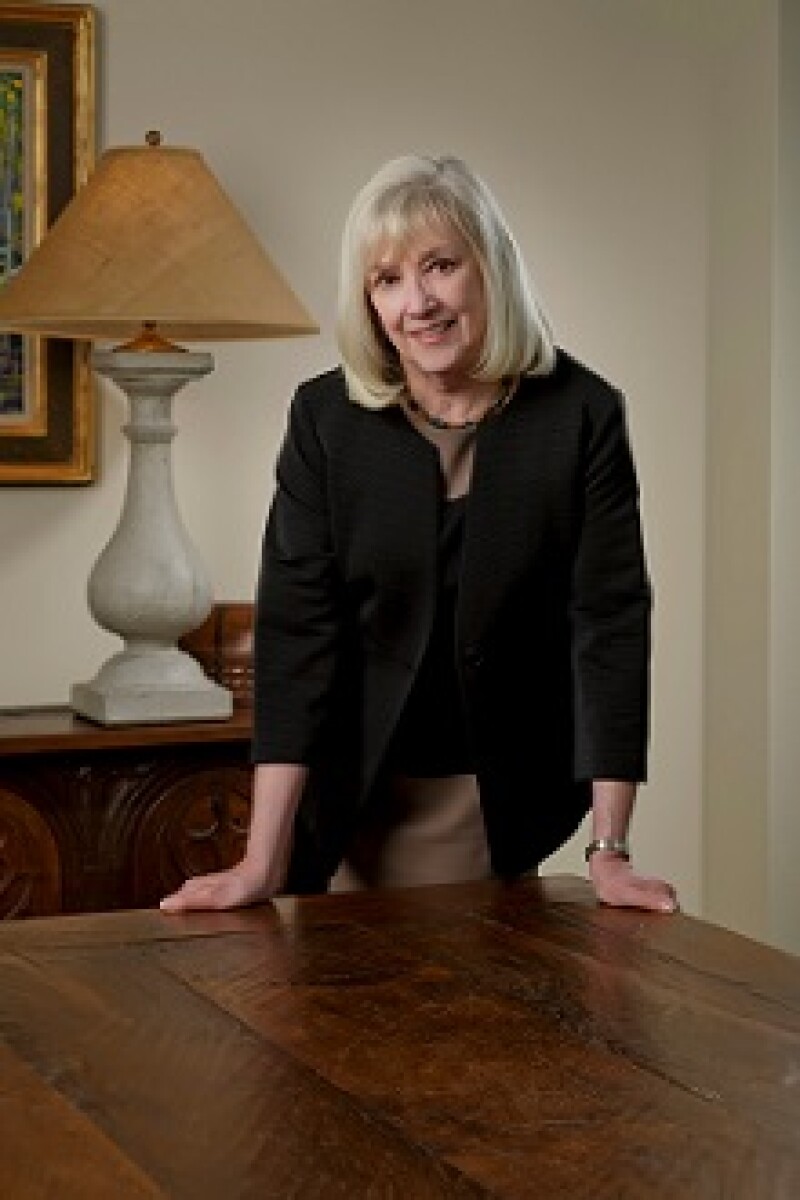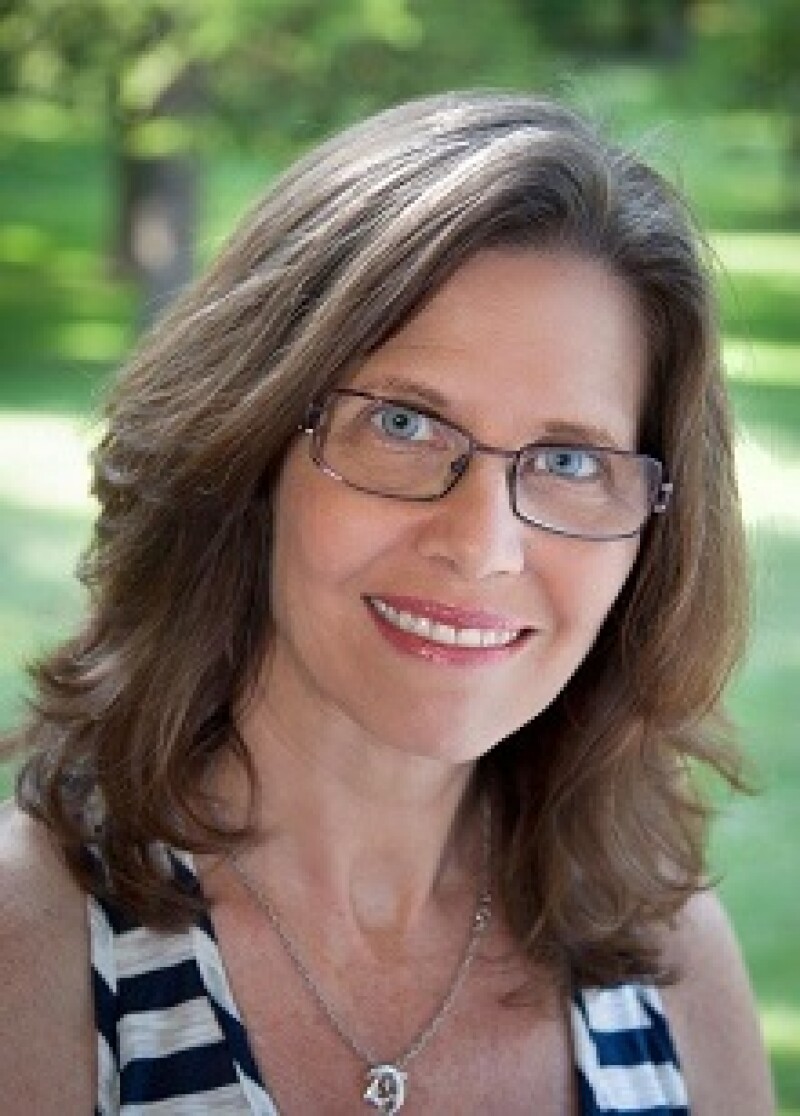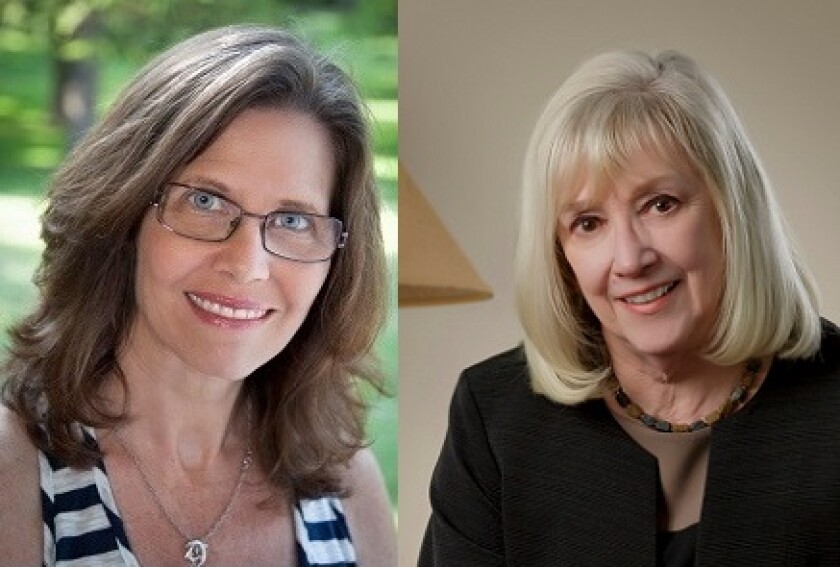
The annual meetings were much smaller when Meg Boulware joined the American Intellectual Property Law Association (AIPLA). And the number of women at those meetings was infinitesimal. “I think there were about three of us!” she says.
The women of AIPLA naturally banded together. By the early 2000s, just after the end of Boulware’s tenure as president of AIPLA, about 25 women were attending AIPLA and the Women in IP Law Committee formed.
“At first, honestly, the group was more of a support group,” says Boulware, who now serves as the co-chair of the committee’s Advancement and Retention Subcommittee. The committee still serves that function, because “we really want to have good resources for people,” Boulware says. “Now, the whole committee has diversified, so it really turned out great,” she adds.
Randi Karpinia has served as chair of the committee for one of the two years of her appointment and is the director of intellectual property law at Motorola Solutions, where she has spent her entire career. Embedded in a field she loves, her work with the Women in IP Law committee, coupled with her role at Motorola Solutions, shapes a career that “really gets me up in the morning and gets me going,” says Karpinia.
Karpinia has long been a member of AIPLA and has served on a number of its committees. She says the Women in IP Law committee has always had a special draw for her.
The committee offered a “warmth and like-mindedness” that other groups didn’t, and felt like a worthwhile place from which Karpinia could have a lasting impact. Karpinia is motivated to “change the ways that women deal with all of the negativity around the leaky pipeline and the gender gap in the IP community,” she says. She wants to accomplish this by “turning…the conversation around into helping each other and fostering our community,” she says.
Turning into a win-win
In deciding the direction she wanted to take the Women in IP Law committee, Karpinia’s priority was “having a vision that we all share,” she says. “Then having goals and putting them into something that was tangible.”

To that end, Karpinia broke the committee into four core subcommittees: advancement and retention, outreach, professional and personal development, and presence and branding. Karpinia chose leaders for each subcommittee, including Boulware (and her co-chair, Melissa Buss),for the advancement and retention committee. “With a philosophy of inclusion and opportunity, each [subcommittee chair] took their buckets and have just run with empowering anyone who raises their hand and wants to get involved to be able to do so,” says Karpinia.
For her part, Boulware says that as co-chair of the advancement and retention subcommittee, she is “on the grass-roots level” of the committee. “We are trying to explore every single way that we can get the word out to the community that retaining and advancing women is going to be a long term positive goal for your institution,” says Boulware. “If women do not stay in IP, it’s going to be a loss to the US economy and to the entity that worked hard to train them, hopefully, and that they were contributing to, and, it’s just a lose-lose situation. We’re trying to turn that into a win-win.”
It seems to be working so far. Boulware notes that women and men alike attend the Women in IP Law Committee’s regular breakfasts, which feature panel discussions among prominent women in IP. “We’re not preaching to the choir at AIPLA,” says Boulware. “We’re trying to be the best advocate we can to the best audience we can. We don’t need to be talking to ourselves, we need to be talking to the community as a whole.”
Take your rightful seat
Boulware also leads by example. With a Master’s degree in biochemistry, she became, not only a partner at, but the head of the IP group at the now-defunct Jenkins & Gilchrist. She then became a partner at Baker & McKenzie before she and another female partner there, Tamsen Valoir, struck out to form their own IP boutique in Houston.
“I think that there’s probably an overlay of feminism in the way we run everything,” says Boulware, “but our goal is to have just the highest quality law practice with the most engaging and very open and friendly environment.”
Karpinia and Boulware think that women have generally gained confidence in themselves to take charge, and are pushing one another. “I think women are feeling very empowered to help each other to help themselves,” said Karpinia. “I don’t hear the ‘woe is me’ kind of complaints that maybe I would’ve heard 20 or 30 years ago.” She says women now have a stronger history of and ability to “get a seat at the table,” where they have greater power and influence.
Like Boulware, Karpinia has found her way of doing this, having worked her way up Motorola Solutions’ ranks, both as a mechanical engineer and – after attending law school while working full time – as in-house IP counsel.
“I’m just fascinated with the law. I love my job, I love what I do, and what I’ve found is that I’ve been able to meet and form relationships with so many smart, successful people and so many smart, successful women in my field,” says Karpinia. She has leveraged her wide network of IP practitioners to help her to understand and work with the market.
Karpinia’s appreciation for the benefits of these kinds of communities is reflected in her work for the Women in IP Law committee. In 2017, the committee will celebrate the 10th year of its Global Networking Event, which is hosted in more than 20 countries.
“The focus of the networking event has always been to bring people into a smaller community, to give you that network not only for personal strength but professional,” says Karpinia. In addition, the Women in IP Law committee helps to encourage and organise community service opportunities (a new initiative), book groups and lean-in circles for its members.
Looking forward
Both women agree that IP is becoming an increasingly important field and therefore important for women to succeed in. “That comes with a host of opportunities,” says Karpinia, “so I really think that women, and men also, should set their sights high, engage others, and most importantly, give back – always give back. My most rewarding moments have been those when I‘ve helped others in this field, because, inevitably, they’ve taught me as much as I’ve taught them.”
Boulware echoes her sentiments, and emphasises the divergent career paths one can choose within IP as one of the field’s draws. “We have a very special niche in the legal area and I think that gives you more flexibility in your career path,” she says. “And now, IP’s a big deal. We are a technology exporter, we are intellectual property exporters, that’s what our economy is based on.” So, to anyone in IP, Boulware says: “I think you’ve picked a great area, I would say stick with it!”









